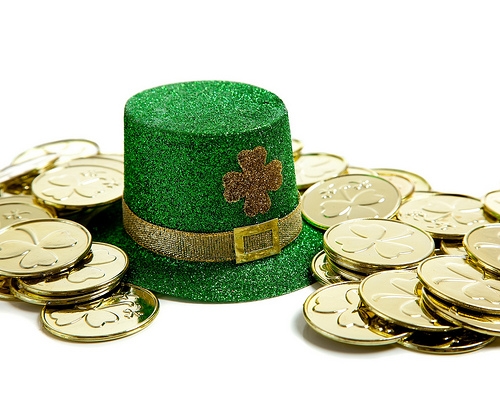April 7th, 2016

Nobody likes bad breath, and although it can sometimes be difficult to tell if you have it, it is always better to practice good oral health than risk having a smelly mouth. There are many ways to reduce or eliminate bad breath, some are definitely more effective and longer lasting than others. Check out ways to do so below.
Floss Regularly
As difficult as it can be to remember to floss regularly, when it comes to bad breath, flossing is one of the easiest and most cost effective ways to freshen your mouth. See, flossing reduces the plaque and bacteria found in areas of your mouth that a toothbrush simply can't reach, and in turn, it rids your mouth of the smell associated with that bacteria. While flossing may not eliminate bad breath on its own, if you do it along with other health oral hygiene habits like brushing, then you may just develop a fresher smelling mouth.
Use Mouthwash
Using some sort of mouthwash can really freshen up your breath, especially if you find it still smells after brushing and flossing. There is a wide variety of mouthwash products on the market, however, you can also create your own by simply using baking soda mixed with water.
Always Brush after You Sleep
Whether after taking a nap, or having a full night of sleep, you will want to brush your teeth in order to reduce bad breath. The truth is, bacteria accumulates in your mouth while you are sleeping (even during a short nap) and that is ultimately the source of bad breath. So next time you wake from a good slumber, give your mouth some brushing and you will find it makes a big difference in the freshness of your breath.
There are many ways to freshen your breath beyond just using gum or mints, the above mentioned are just a few for you to try. Test them out and you will likely find your bad breath problem is solved, or at least considerably reduced. Of course, you can always ask Dr. James Robson at your next visit to our East Lyme, CT office.
March 31st, 2016

Dr. James Robson and our staff rely on digital X-rays to help us diagnose oral conditions and process images at incredibly high speeds. You can also view digital X-rays in real time while we examine your mouth with an intraoral camera and upload the images to a software program. A chairside computer monitor lets you see these images as we refine areas of concern to ensure an accurate diagnosis.
But are dental X-rays safe?
Yes! They emit 80 percent less radiation than exposure-type X-rays and provide detailed images to improve diagnosis and treatment. We can now detect dental problems in their earliest stages without subjecting you to unnecessary radiation. The amount of radiation released by digital X-rays is “negligible,” which means the amount is so small, that it can be safely disregarded.
Safe enough for children and pregnant women, digital X-rays detect microscopic pitting in tooth enamel and other abnormalities in the oral tissues that might have remained undetected with traditional X-rays. When Dr. James Robson and our staff discover dental caries in their earliest stages, we can initiate treatment measures that will effectively prevent cavity development, tooth decay, and potential tooth loss.
Patient appointment lengths are shortened with digital X-rays as well, because images are immediately viewable and do not require the exposure time associated with old-style X-rays.
How Digital X-Rays Differ from Traditional X-Rays
Instead of using cardboard-contained film, we insert a small sensing device about the size of a pen in your mouth and engage the digital X-ray machine by manually manipulating control buttons. Within seconds, images appear on the monitor that can later be stored in your file or sent to another doctor for further examination.
The increased resolution afforded by digital X-rays means that patients are able to understand the seriousness of their dental issues better, and are more inclined to follow through with procedures recommended by Dr. James Robson.
Safer, Better and Faster
For detection of cancerous tumors in their early states, digital X-ray technology offers vast improvements over film X-rays because of its cutting-edge image processing capability. Early detection of oral cancer and dental caries is the best way to prevent any type of oral health problem from exceeding the treatable stage.
March 24th, 2016

At Robson Dentistry, we know your dental health is closely connected to your overall health. We also know that the mouth can oftentimes be the first place to show signs of other bodily health issues.
Studies have shown possible links between periodontal (gum) disease and heart disease, and researchers have found that people with gum disease have an elevated risk of suffering from a stroke or developing coronary artery disease. Believe it or not, an estimated 70 to 80 percent of North American adults currently have some form of gum disease.
Gum disease, which affects the tissues that surround and support the teeth, is an infection caused by a sticky film of bacteria called plaque that forms on the teeth, mainly along the gum line. In its early stages, called gingivitis, gum disease can be treated by Dr. James Robson and often reversed.
To help keep your mouth and heart healthy, we’ve provided following tips to help prevent problems before they arise:
- Brush your teeth with fluoride toothpaste at least twice a day. Make sure you brush gently beneath the gum line around each tooth.
- Floss at least once a day.
- Have a dental checkup and cleaning twice a year, or as recommended.
- Eat a healthy diet. This includes avoiding foods with a high concentration of sugars or starches and consuming more fruits and vegetables.
- Avoid tobacco and copious levels of alcohol. If you smoke, quit. And remember, heavy drinking dramatically increases the risk of developing mouth and throat cancer.
Don’t put off your next visit to Robson Dentistry any longer! If it has been a while since your last visit to our East Lyme, CT office, please give us a call!
March 17th, 2016

“St. Patrick's Day is an enchanted time -- a day to begin transforming winter's dreams into summer's magic.” Adrienne Cook
Lucky green shamrocks, leprechauns, and pots of gold – it must be St. Patrick’s Day! If you’re not Irish, how do you go about celebrating St. Patrick’s Day? It’s easy: You just put on one of those tall leprechauns hats, dress in green from head to toe, and wear one of those carefree pins that say “Kiss Me, I’m Irish”. On St. Patrick’s Day, everyone is Irish, and that is the universal beauty of the holiday. Celtic pride does not discriminate.
Wondering what our team at Robson Dentistry is doing to celebrate March 17th? Well, we’ve thought about doing everything from handing out lucky gold coins (you know, the fake ones that are made of chocolate) to shamrock stickers. Maybe we’ll even give away green toothbrushes and floss! You’ll never know unless you come in to see Dr. James Robson !
All kidding aside, St. Patrick’s Day is an important cultural and religious holiday. There are lavish parades and church services across Ireland on March 17th. Over time, however, the holiday has developed into a day to observe Irish culture in general. In places like England and the United States, where there is a large Irish Diaspora, the holiday has greater significance than other countries. From the streets of Boston to St. Patrick’s Cathedral in New York, it is a day of celebration, and many Americans of Irish descent will cook up a traditional meal of corned beef and cabbage.
So, to all of you with Irish ancestry, and to all of you who have decided to be Irish for the day, our office wishes you a Happy St. Patrick’s Day. Good luck looking for a pot of leprechaun gold, which is said to exist at the end of the rainbow. However, keep away from those sugary Lucky Charms; sweet cereals might taste good, but your kids’ teeth might not be feeling too lucky if they eat it for breakfast every day. Have a great St. Paddy’s Day!




